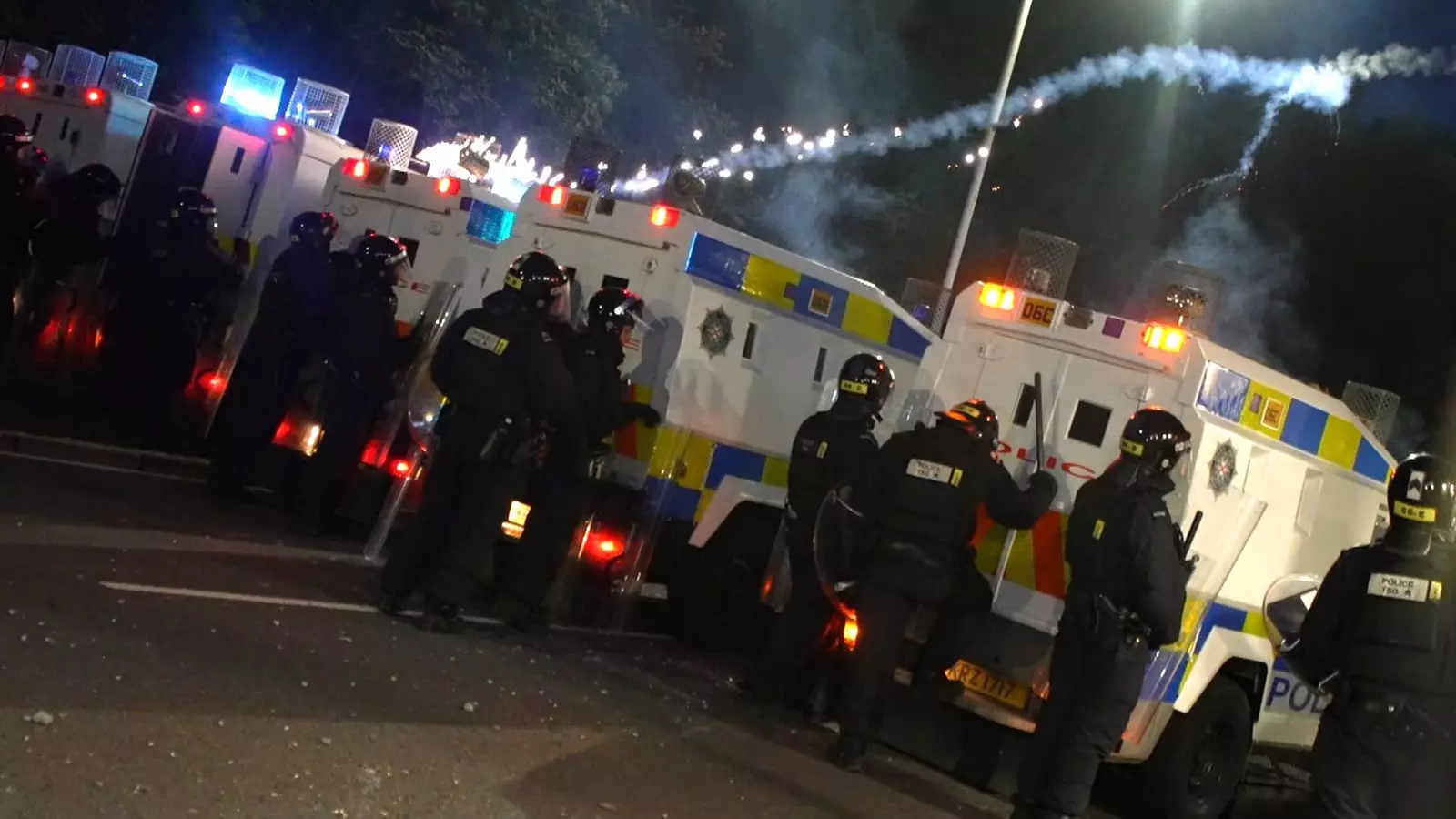In a shocking display of communal unrest, Northern Ireland has spiraled into violence over the past week, shifting from Ballymena to Portadown. Over five nights, the heightened tensions surrounding an alleged sexual assault case have manifested in the disturbing form of physical attacks, destruction of property, and confrontations with law enforcement. The severe nature of the disturbances is alarming, compounded by the fact that many of those affected are innocent families—including women and children—caught in the crossfire of what is increasingly revealing itself to be a racially motivated crisis.
Petrol bombs, water cannons, and a litany of projectiles like fireworks and bottles have become grim symbols of civil discord. The reported injuries among over 60 police officers signal a dire need for effective conflict resolution strategies. It becomes increasingly clear that such hostility is not merely a spontaneous reaction but rather an alarming reflection of underlying societal issues that must be addressed head-on.
A Framework of Racism and Fear
At the heart of this chaos lies a troubling narrative. The arrest of two 14-year-old boys—Romanian nationals accused of sexual assault—has fueled anger in certain communities. This case, complicated further by the involvement of a Romanian interpreter during a court session, has only added fuel to an already smoldering fire of xenophobia. The narrative has pivoted from an alleged crime to an intensifying climate of fear rooted in racism, as some community members lash out at people from different backgrounds.
It is striking to observe how, instead of finding solidarity in collective sorrow over violence against women, some factions have chosen to devolve into an ugly display of bigotry. This is a poignant moment for communities across the UK. The violent backlash against these minors is a testimony to a deep-seated prejudice that, left unchallenged, will erode the very fabric of Northern Irish society.
The Political Response and Responsibility
The leadership, represented by figures such as First Minister Michelle O’Neill, has begun to express its outrage at the chaos that is unfolding. O’Neill’s articulations of “devastation” and “horrific” circumstances ringing in the ears of the victims ring hollow in the face of a political landscape that has historically allowed sectarian divides to fester. It is crucial to note that while political condemnation is essential, merely voicing disapproval without taking actionable steps to enforce community safety is not enough.
The commitment by the PSNI to bolster their ranks with officers from Scotland exhibits a recognition that the current violence demands an urgent and resolute response. However, what remains to be seen is whether this increased enforcement can genuinely address the root causes of unrest, or if it merely serves as a band-aid on a festering wound. The strategy to pursue those described as “bigots and racists” signals a need for an enduring commitment to justice and equality for all, without resorting to the demonization of entire communities based solely on the actions of individuals.
Looking Forward: The Path to Reconciliation
The events unfolding signify not just a local crisis, but resonate with greater implications across the liberal fabric of society that espouses equality and mutual respect. How do we, as a community, reconcile these painful realities? It’s imperative for citizens and leaders alike to foster dialogue rather than division, to promote understanding over hostility. Only through proactive measures—community engagement, educational initiatives, and unwavering political will—can we hope to dismantle the racism that clouds Northern Ireland’s streets today.
Each incident of violence serves as a stark reminder that we are all tethered by our shared humanity, and it is our collective responsibility to ensure that the legacy we construct from this turmoil is not one of further division, but rather, healing and unity.


Leave a Reply